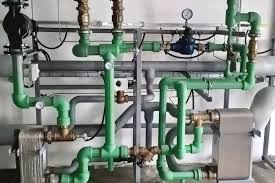Nov . 10, 2024 02:34 Back to list
HDPE Pipe Manufacturing for Efficient Water Supply Solutions in Industrial Applications
Water Supply HDPE Pipe Factories Ensuring Efficient and Sustainable Water Management
In the ever-evolving landscape of infrastructure, the importance of a reliable and efficient water supply system cannot be overstated. One of the key players in this sector is High-Density Polyethylene (HDPE) pipes, which have gained immense popularity due to their strength, durability, and resistance to corrosion. As urban populations grow and the demand for clean water escalates, HDPE pipe factories are at the forefront of meeting these needs with innovative solutions.
The Rise of HDPE Pipes
High-Density Polyethylene pipes are manufactured from a thermoplastic polymer known for its high strength-to-density ratio. These pipes are designed for various applications, including municipal water, sewage, and industrial projects. The exceptional chemical resistance of HDPE pipes makes them suitable for transporting potable water, as they do not leach harmful substances into the water supply. Furthermore, their flexibility allows for easier installation compared to traditional materials, such as metal or concrete pipes.
The advantages of HDPE pipes extend beyond just their material properties; they are also environmentally friendly. These pipes are entirely recyclable and can have a longer lifespan than many alternatives, reducing the need for frequent replacements and minimizing waste in landfills. With growing concerns about environmental sustainability, factories that produce HDPE pipes are increasingly focusing on reducing their carbon footprint during manufacturing.
The Manufacturing Process
The production of HDPE pipes involves several stages, beginning with the selection of raw materials. High-quality polyethylene granules are sourced and processed in specialized machinery. The first step in the extrusion process involves heating the granules to create a molten plastic, which is then forced through a die to form the desired pipe shape. After exiting the die, the pipes are cooled and cut to the required lengths.
Quality control is a crucial aspect of HDPE pipe manufacturing. Factories implement strict testing protocols to ensure that each batch of pipes meets industry standards and regulations. Tests include pressure testing, impact resistance testing, and dimensional checks to guarantee that the pipes are capable of withstanding the rigors of installation and use.
With the rise of automation and advanced technology, many HDPE pipe factories have begun adopting smart manufacturing practices. The incorporation of sensors and real-time monitoring systems allows for greater efficiency and accuracy in production, ultimately leading to cost savings and reduced waste.
water supply hdpe pipe factories

Global Impact and Market Trends
The global demand for HDPE pipes has surged due to increased investment in water and wastewater infrastructure projects. Governments around the world are prioritizing sustainable water management solutions, further propelling the growth of the HDPE pipe market. In developing regions, the need for reliable water supply systems is critical to public health, driving the installation of HDPE pipes in new infrastructure projects.
Furthermore, the versatility of HDPE pipes has opened new markets beyond traditional applications. Industries such as agriculture and mining are increasingly turning to HDPE piping solutions to transport water and other fluids efficiently. This diversification has enabled HDPE pipe factories to expand their product offerings and reach broader markets.
Challenges Ahead
Despite the many advantages, HDPE pipe factories face challenges in meeting the growing demand. Raw material prices can be volatile, affecting production costs. Moreover, as regulations surrounding environmental sustainability become more stringent, factories will need to invest in cleaner technologies and sustainable practices.
Additionally, the competition in the HDPE pipe market is intensifying, with new players emerging and existing manufacturers expanding their capabilities. To stay ahead, factories must focus on innovation, quality, and customer service.
Conclusion
As we look toward the future, the role of water supply HDPE pipe factories will be indispensable in ensuring efficient and sustainable water management. With their commitment to quality, innovation, and environmental stewardship, these factories are paving the way for a more resilient infrastructure that can support growing populations and protect our precious water resources. As the demand for safe and efficient water supply systems continues to rise, the future of HDPE pipes looks bright, promising a more sustainable approach to water management around the globe.
-
High-Quality PVC Borehole Pipes Durable & Versatile Pipe Solutions
NewsJul.08,2025
-
High-Quality PVC Perforated Pipes for Efficient Drainage Leading Manufacturers & Factories
NewsJul.08,2025
-
High-Quality PVC Borehole Pipes Durable Pipe Solutions by Leading Manufacturer
NewsJul.08,2025
-
High-Quality PVC Borehole Pipes Reliable PVC Pipe Manufacturer Solutions
NewsJul.07,2025
-
High-Quality UPVC Drain Pipes Durable HDPE & Drain Pipe Solutions
NewsJul.07,2025
-
High-Quality Conduit Pipes & HDPE Conduit Fittings Manufacturer Reliable Factory Supply
NewsJul.06,2025

